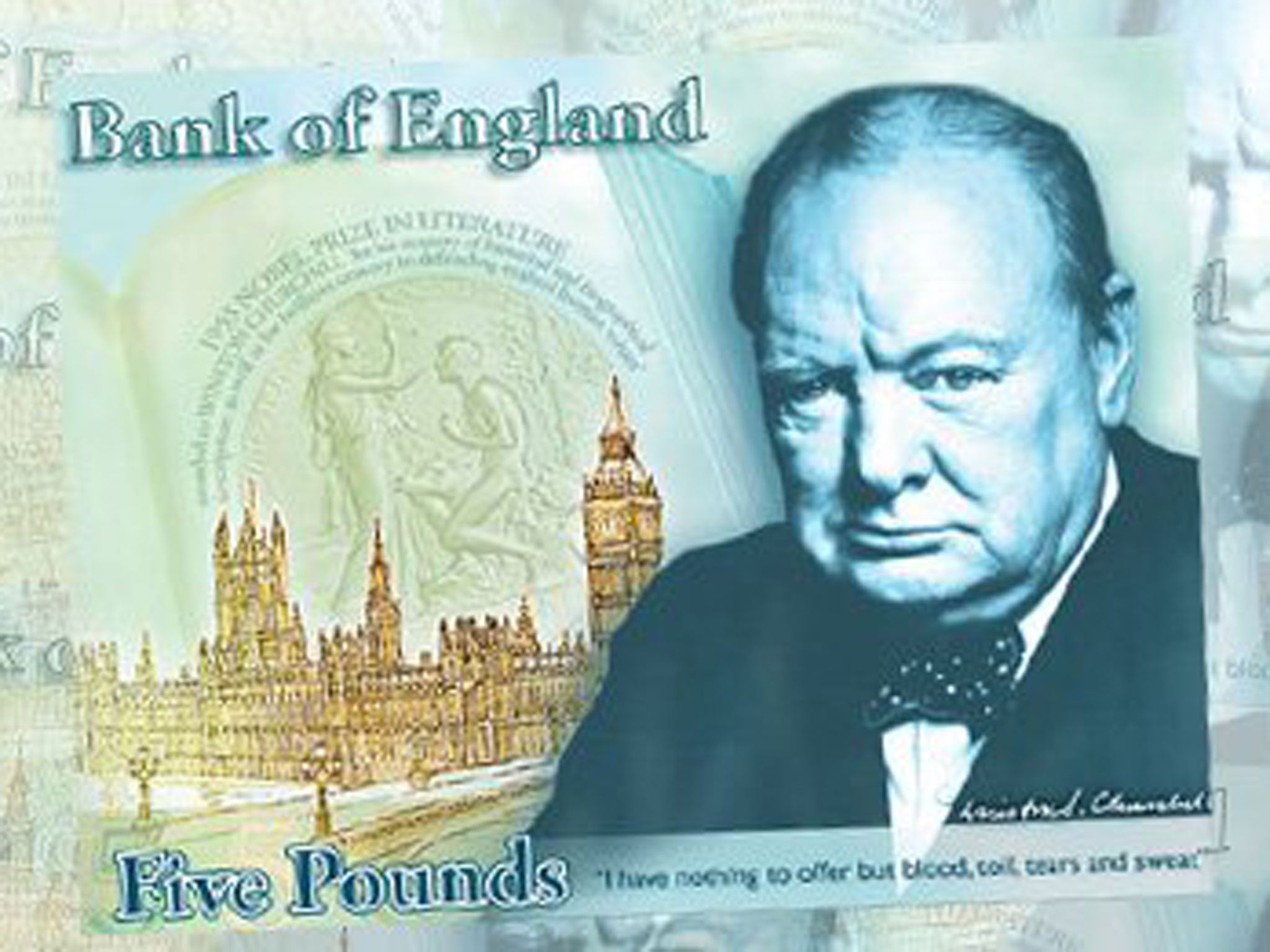Plastic currency is the future. But I can't be the only one who'll mourn the paper bank note
This is just one more step towards a world devoid of sensory delight


Your support helps us to tell the story
From reproductive rights to climate change to Big Tech, The Independent is on the ground when the story is developing. Whether it's investigating the financials of Elon Musk's pro-Trump PAC or producing our latest documentary, 'The A Word', which shines a light on the American women fighting for reproductive rights, we know how important it is to parse out the facts from the messaging.
At such a critical moment in US history, we need reporters on the ground. Your donation allows us to keep sending journalists to speak to both sides of the story.
The Independent is trusted by Americans across the entire political spectrum. And unlike many other quality news outlets, we choose not to lock Americans out of our reporting and analysis with paywalls. We believe quality journalism should be available to everyone, paid for by those who can afford it.
Your support makes all the difference.So plastic banknotes are going to become a reality. From 2015, £5 notes will be issued in plastic, and the familiar paper stuff will be no more. I remember the idea being mooted a short while ago, and some assurance being that the public would be asked if they approved.
But all anybody seemed to debate was whether Jane Austen was a suitable historical figure to appear on a tenner. Was there a discussion of whether we wanted a wholesale changeover to plastic? No, just as no debate was encouraged about the obsolescence of old lightbulbs, the kind that actually lit rooms up.
What would Winston Churchill have made of it? Would he be happy to have his growly old fizzog peering at the world from a plastic fiver? No – he’d have thought it a monstrous intrusion of the synthetic into the real; he was, of course, born into a world with no plastic in it anywhere, and cotton-paper notes had been around since 1694.
Research has shown, apparently, that polymer banknotes are “cleaner” (oh yeah – boy, how I hate those germ-infected £50s) and last longer and are harder to counterfeit than paper. Is that it? Is that enough to justify dismantling a 320-year fiduciary tradition which affects British culture in a hundred ways, from verbal to social?
No longer will we be able to speak of “the folding stuff” because plastic notes don’t fold properly. According to people who’ve used them in Australia and Canada, plastic notes are slippery and hard to count (money will literally slip through your fingers) and hard to recycle without polluting the air. Bankers will no longer be able to wave a wad of notes in their fingers; they’ll have just a slithery handful of money, like a large pack of playing cards. And has the Bank of England considered how famous people will be discommoded by being unable to snort cocaine through a rolled-up tenner? I doubt it.
What I really object to, though, isn’t just the unnecessary plasticising of everything (remember that Shel Silverstein song, “Everything’s Going to Be Plastic By and By”? Talk about prophetic) it’s the loss of texture in our lives. Texture: the feel and smell and uniqueness and structure of stuff; the fabric of threads or autumn leaves in our fingers; the sensory reassurance of the unchanging everyday. And we know how much has been, and is being, lost because of the decline of paper.
Slowly and inexorably, we are losing print journalism, the real, non-digital newspaper pages we used to open with an expansive crackle that promised a lot of serendipitous entertainment. Real books, those caramel-and-glue-smelling, multi-winged repositories of emotion and information with whom you could have a real relationship over years, are doomed to be eclipsed by e-books. So is the larger texture of private libraries, as more and more people look at your shelves and ask: “Why do you bother with all this stuff? Why d’you want your house to look like a second-hand bookshop?”
I marvelled, years ago, when I first saw a lovely log fire blazing away on a television set positioned in a grate as if it were a real fire. How surreal, I thought, how ludic and arty. Now they’re turning up in homes all over the place – not as bad as the flickering coal-effect fire my parents had in the living room, but still a ridiculous substitute for a real conflagration with, you know, coal and logs. They seem to me potent symbols of where we’re headed, into a smell-free, temperature-controlled, shiny-surfaced, wipe-clean, one-size-fits-all universe, where nothing affects the senses in any salient way, or feels rough or nubbly to the touch, or connects you with an older world than the one you’re in.
Soon, the Bank of England will publish a report saying that metal money is full of potentially harmful, or bacteria-carrying, alloys and that, henceforth, they’ll be issuing only rubber 2p and 5p and 20p and 50p bits. They haven’t said it yet. But mark my words.
Join our commenting forum
Join thought-provoking conversations, follow other Independent readers and see their replies
Comments